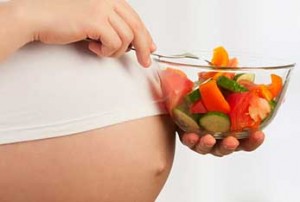
More evidence that low-calorie sweeteners are bad for your health
Studies show that artificial sweeteners can raise the risk of hypertension, metabolic syndrome, type 2 diabetes and heart disease, including stroke.

Natural Health News — Preventing babies from being born to soon may be as ‘simple’ as ensuring the mother eats a healthy diet.
That’s the finding of a new study conducted by researchers from the University of Gothenburg, Sahlgrenska University Hospital and the Norwegian Institute of Public Health
To assess the link between diet and preterm birth 66,000 women completed a comprehensive questionnaire about what they had been eating and drinking since becoming pregnant.
The researchers also had access to information about the women’s general lifestyle, e.g. level of education, living conditions, income, weight, physical activity, smoking habits, alcohol consumption, number of children and medical factors such as history of preterm birth.
15% lower risk
Preterm birth, defined as spontaneous or induced delivery before the end of gestational week 37, can be associated with acute and long-term complications for the child and is a major problem in modern maternity care. Measures to prevent preterm births are therefore of high priority.
The results show that the group of women with the ‘healthiest’ pregnancy diet – built around vegetables, fruit, whole grains, and fish and plenty of water – had a roughly 15% lower risk of preterm birth compared with those with the most unhealthy diet – one comprised of processed food, fast food, junk food, and snacks. This risk remained after controlling for ten other known risk factors which raise the risk for preterm delivery.
“Pregnant women have many reasons to choose a healthy diet with lots of vegetables, fruit, whole grain products and some types of fish, but this is the first time we can statistically link healthy eating habits to reduced risk of preterm delivery,” says Linda Englund-Ögge, researcher at the Sahlgrenska Academy, University of Gothenburg.
Encourage healthy eating habits
Strategies to encourage healthy eating during pregnancy often have mixed results – especially amongst women who are less educated and who are on a low income. In addition most research into pregnancy and nutrition tend to focus on interventions with single nutrients rather than whole diet.
Stressing that it is not harmful to occasionally eat something unhealthy, Englund-Ögge says, nevertheless, that “dietary recommendations given to pregnant women are important”.
‘Dietary studies can be very complex. Any given food item may contain a wide range of substances and is usually consumed together with other foods. This makes it difficult to find out its exact effects of one single food. We show that there is a statistically established link between a healthy diet and reduced risk of preterm delivery, but our study wasn’t designed to identify any underlying mechanisms.”
Englund-Ögge says that studies of the overall dietary pattern and the total quality of the foods consumed are important complements to future panned studies of how single food items affect the risk of preterm birth. The researchers are hoping that the study will inspire doctors, midwives and others who work with pregnant women to encourage healthy eating habits.

Please subscribe me to your newsletter mailing list. I have read the
privacy statement